MUC & Affiliated Units
University Overview
Located on the west side of Beijing, Minzu University of China (MUC) is generally recognized as the most prestigious institution of higher learning for the education of ethnic minorities in China. It is considered the “cradle of senior professionals of Chinese ethnic minorities”, which enjoys priority support from the national government through "211 project", "985 project" and "Double First-class Initiative". Minzu University of China is located in Haidian District, which is full of academic institutions in Beijing. It is adjacent to the National Library in the south and Zhongguancun Science and Technology Park in the north. Its new campus in Fengtai District was officially put into use in September, 2021.
Minzu University of China (MUC) is an institution of higher learning with distinctive characteristics established by the Chinese Communist Party and the state to solve China's ethnic problems and train relevant ethnic minority cadres and senior professionals. The predecessor of MUC was the Yan'an Minzu Institute, established in 1941. After the founding of New China, with the central government's approval, the Central Institute for Nationalities was established in Beijing in 1951, with Ulanhu as the first president (Council Vice Premier Mr. Ulanhu as the founding president). In November 1993, it was renamed Minzu University of China. In 1999 and 2004, the school was included in the national-level "211 Project" and "985 Project". In 2002, the National Ethnic Affairs Commission, the Ministry of Education, and the Beijing Municipal People's Government signed the "Agreement on Key Joint Construction of Minzu University of China", accelerating the pace of school reform and development. In 2017, it entered the"Double First-class Initiative". The current MUC Chinese Communist Party Secretary is Zha Xianyou (查显有), and the university president is Guo Guangsheng (郭广生).
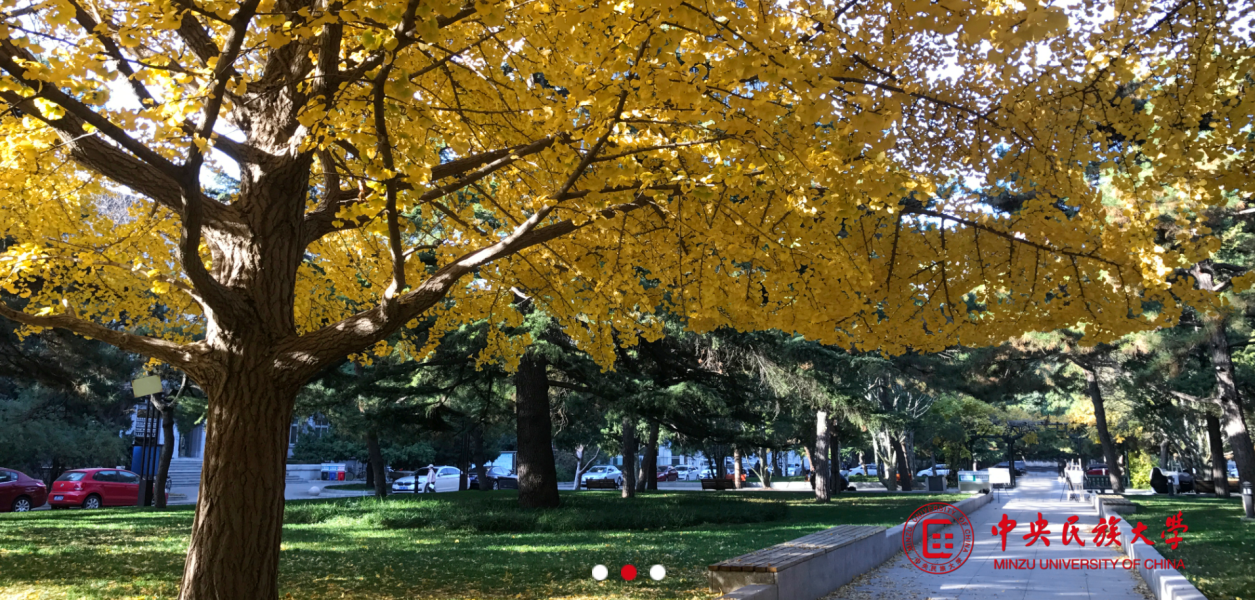
The successive collective leadership of the Chinese Communist Party and the country have always paid great attention to the construction and development of Minzu University of China. Earlier Chinese Communist Party and state leaders, such as Mao Zedong and Deng Xiaoping, received representatives of instructors and students from the university on 17 occasions. When CIN was renamed in 1993 to MUC, the former President Jiang Zemin personally contributed his Chinese calligraphy for the new title "Minzu University of China." In June 2001, Comrade Zhu Rongji visited the school and, on behalf of the central government, put forward the goal of "building up Minzu University of China into a world-class university for ethnic groups". In the same year, Hu Jintao, Li Lanqing, and other leading comrades personally approved the "Request for Further Running Minzu University of China" jointly reported by the National Ethnic Affairs Commission, the Ministry of Education, the State Planning Commission, and the Ministry of Finance. In June 2002, NEAC, MOE, and Beijing Municipal People's Government signed the Collaborative Agreement on "Joint-Construction of Minzu University of China," which promoted a new level for the university's development. In 2009, Comrade Xi Jinping pointed out when inspecting the university's work: "Minzu University of China has an important position in China's higher education system and the cause of national unity and progress. It has made important contributions for the cause of national unity and progress of the country as well as the economic, social, and cultural construction of ethnic regions." After more than 70 years of development and construction and several generations' ongoing efforts, MUC has become an important base for cultivating outstanding talents with ethnic minority roots. It is also an important base for ethnic theory research and decision-making consultation on ethnic issues. It is also a place to inherit and promote the excellent culture of various ethnic groups.
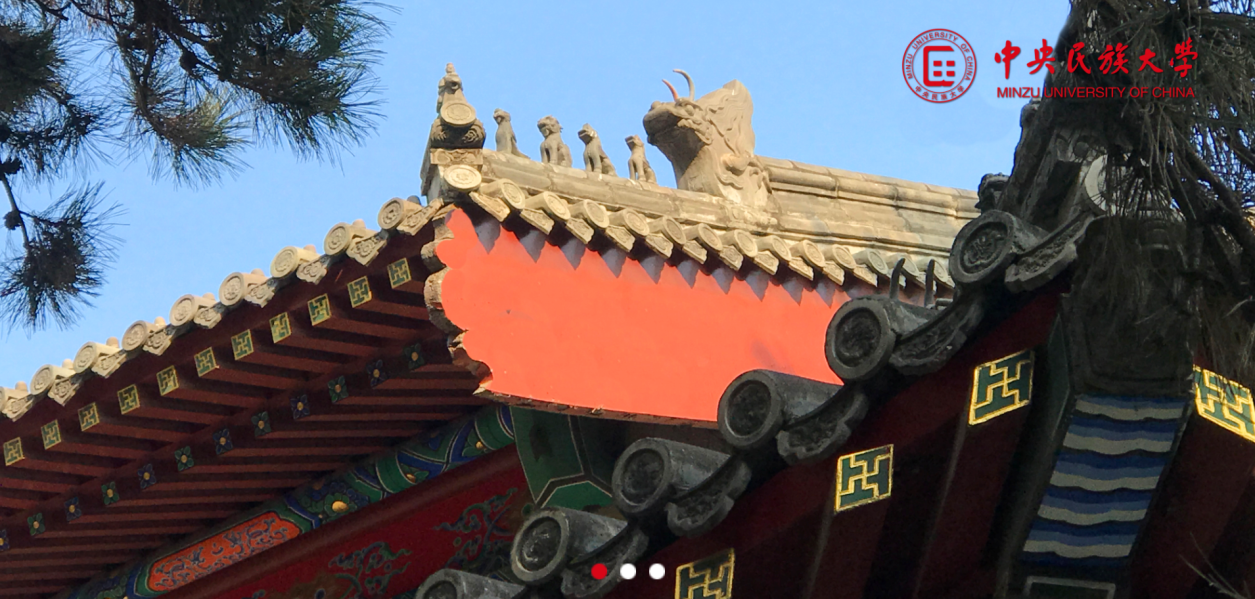
After more than seventy years of development, MUC has become a comprehensive research university with humanities as its main focus and ethnic studies as its unique characteristic, providing a full range of courses in literature, history, philosophy, economics, administration, law, science, engineering, medicine, education while also offering multiple levels of education credentials such as bachelor degrees, master degrees, PhDs, ministerial leaders training, ethnic minority pre-foundational education, art-related secondary schooling and other kinds of further education.
Facilities
MUC provides good facilities for teaching and research. The multi-functional library, which came into service in 2003, has the largest collection among all university libraries in China of books on ethnic minority languages and scripts and documents on ethnological studies. The university’s on-campus Ethnic Museum has a collection of more than 50,000 pieces of art and precious cultural relics relating to China's ethnic minorities, which are of great value for teaching, research, and exhibition purposes. The university is also equipped with first-class multimedia teaching facilities, supported by an advanced campus computer network.
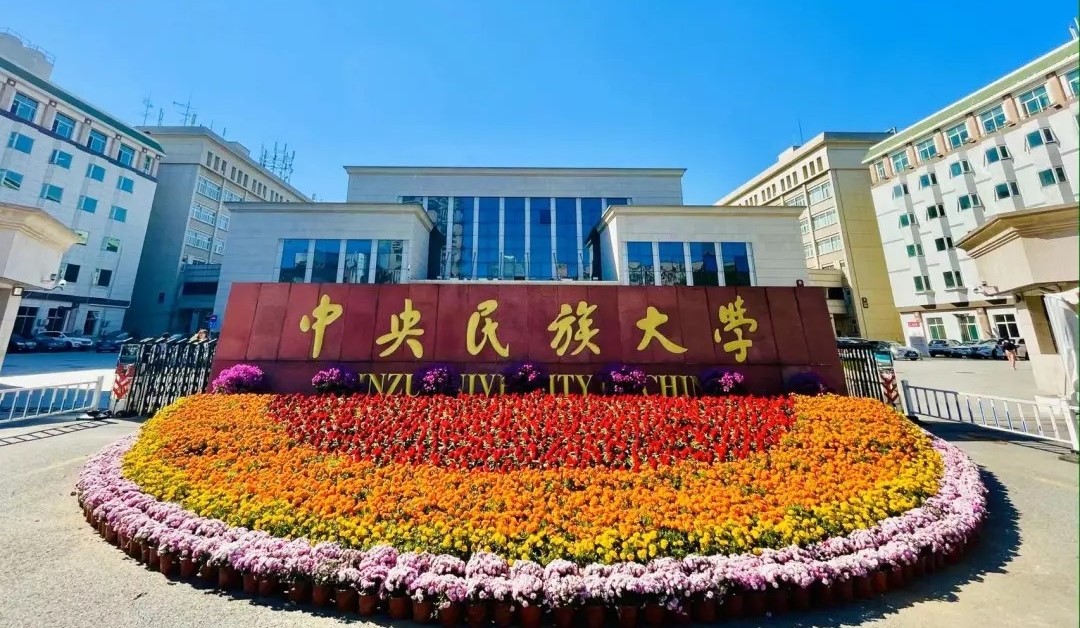
MUC currently covers an area of 380,000 square meters, with a building area of 592,000 square meters, more than 200,000 square meters of teaching and administrative buildings. The new (second) Beijing campus is located on the banks of Qinglong Lake in Fengtai District, Beijing, which covers an area of 810,000 square meters. MUC has more than 5 million volumes of various books and e-books. The collection of books and documents on ethnology and Chinese minority languages and literature ranks among the top universities in China. The MUC press is the national publishing base for teaching materials and works on ethnic subjects. The Journal of Minzu University of China and the National Education Research are the core national journals issued at home and abroad.
Students
MUC recruits students from 34 provinces, autonomous regions, municipalities directly under the central government, and Taiwan, Hong Kong, and Macau. There are 21,759 full-time students, including 13,729 undergraduates, 6,494 master students and 1,351 doctoral students, and 185 minority preparatory students; undergraduates (Including preparatory students), the proportion of minority students is approximately 50%. The school is the recipient of the "Chinese Government Scholarship" for international students. Nearly 500 international students from more than 50 countries are studying at the school. Since its establishment, the school has sent more than 200,000 graduates of all ethnic groups to the country. There are nearly 1,000 well-known experts and scholars, nearly 100 provincial and ministerial leaders of ethnic minorities, nearly 1,000 prefectural and departmental leaders, and more than 10,000 county-level leaders. They are in different positions for the national unity and development of the country. The cause has made outstanding contributions. Minzu University of China has become a cradle for cultivating outstanding talents of ethnic minorities and good national unity.
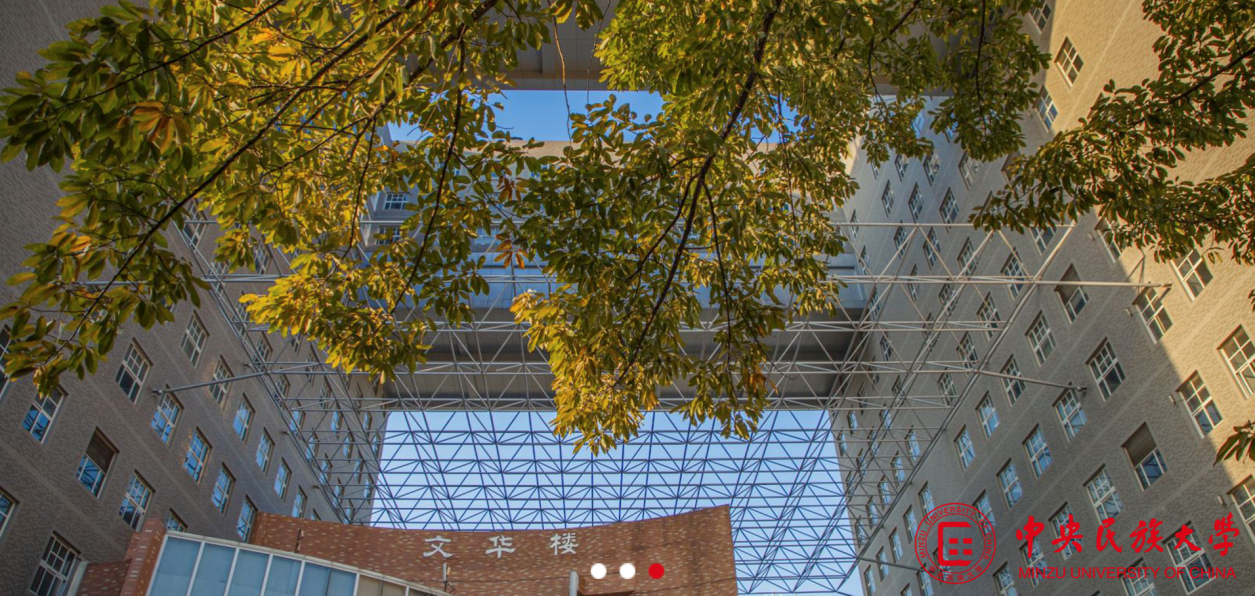
Majors & Programs
MUC currently has 1 university-tier department, 23 colleges, 67 undergraduate majors covering 11 disciplines, 6 first-level discipline doctoral degree authorization points, 5 post-doctoral research mobile stations, and 27 first-level discipline master degree authorization points, 3 national-level key disciplines, 26 provincial and ministerial key disciplines at the first level, 4 provincial and ministerial cross-key discipline, 2 national humanities basic disciplines talent training and scientific research bases, 1 humanities and social sciences of the Ministry of Education research station and nearly 30 provincial and ministerial-level scientific research platforms, including key research bases, 1 Ministry of Education key laboratory and 1 Beijing engineering technology research center, 1 national experimental teaching demonstration center. In 2018, MUC was approved by the Beijing Municipal Education Commission as a pioneering park for college students in Beijing.
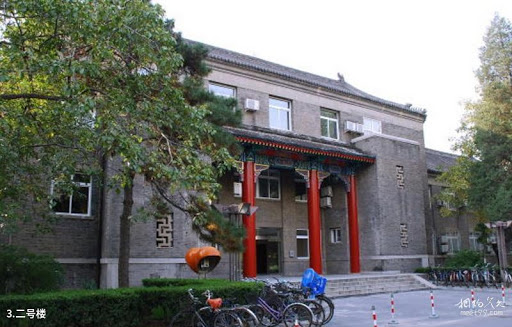
MUC & The Double-First Class Initiative
The Double First-Class initiative is China's largest education development scheme to date, aimed at increasing the global recognition of China's university system by 2049 (the 100 year anniversary of the establishment of the People's Republic of China). The World First Class University and First Class Academic Discipline Construction, combined together and known as Double First Class (Chinese: 双一流; pinyin: shuāngyīliú), is a tertiary education development initiative designed by the People's Republic of China government, in 2015, which aimed to comprehensively develop elite Chinese universities and their individual faculty departments into world-class institutions by the end of 2050. The full list of the sponsored universities and disciplines was published in September 2017, which includes 42 Double First Class Universities (36 Class A schools and six Class B schools) and 465 first class disciplines spread among 140 schools (95 Double First Class Disciplines Universities) including the first class universities. According to the Academic Ranking of World Universities 2018/19 and the Times Higher Education World University Rankings 2019/20, most of the 42 double first class universities are considered to be among the top 500 universities in the world and most of these 95 double first class disciplines universities are ranked among the top 1000 universities worldwide.
Our Talent
MUC has always had high-quality faculty. At the early stage of its development, MUC assembled eminent professors from such famous institutions as Tsinghua, Peking, and Yenching Universities.
When the school was first established, a group of celebrities in the academic world, such as Pan Guangdan, Wu Wenzao, Fei Xiaotong, Weng Dujian, Wu Zelin, Feng Jiasheng, Yang Chengzhi, Lin Yaohua, Fu Lehuan, Yu Daoquan, Wen You, Ma Xueliang, Wang Zhonghan, etc. came to the university to teach. It became important founders of its scientific research and discipline construction. The total number of faculty members stands at around 1,921 talented individuals, of which 1,118 are full-time instructors, 698 are professors and associate professors that account for 60.2% of the total number of full-time teachers. Among them are Dai Qingsha, Mou Zhongjian, Hu Zhenhua, Liu Bingjiang, Ma Yue, Mi Ruoru, Li Kuizheng, Yang Shengmin, Jin Binghao, Ban Ban Dorje, and other well-known experts and scholars. There are also many young and middle-aged rookies emerging, and they have gradually become academic leaders. Besides, MUC employs a group of international experts to lecture at MUC every year. MUC currently has 3 specially-appointed professors in the "Changjiang Scholars Award Program" of the Ministry of Education.There are 2 national-level instructors at MUC, 1 national model teacher, 23 well-known teaching teachers in Beijing, and 131 recipients of special government allowances from the State Council. The school has established exchanges and cooperation with more than 200 universities and scientific research institutions in 44 countries and regions, including University of California, Berkeley, Cambridge University, Oxford University, Humboldt University Berlin, and Leiden University.
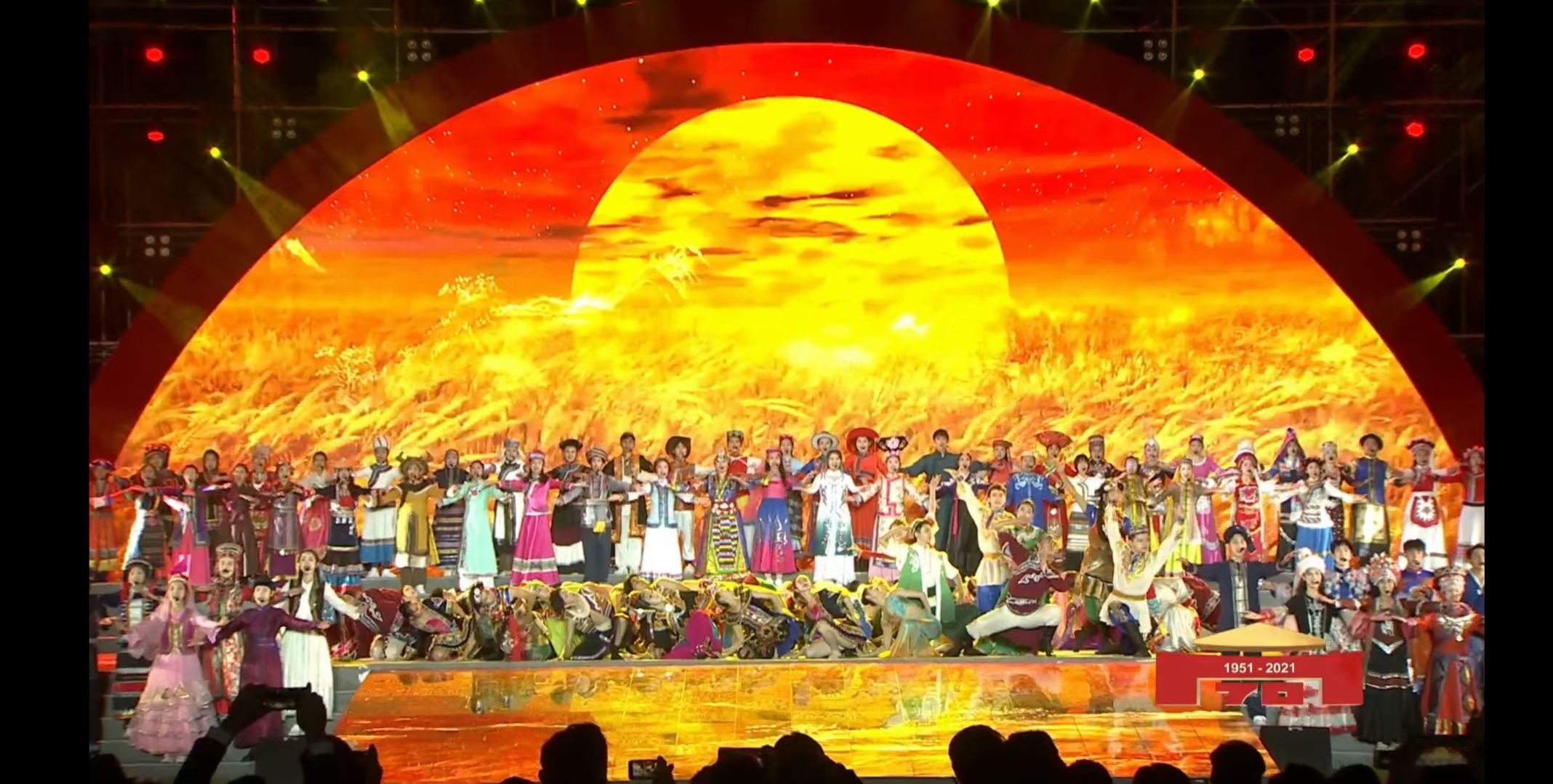
Academic Exchanges and Cooperation at Home and Abroad
MUC is the channel through which the development of higher education for the ethnic minorities in China is linked to the outside world and is an important center for international academic exchange. MUC has established academic exchange programs with more than 200 educational or research institutions throughout the world. Each year hundreds of international students visit MUC for either long-term or short-term learning programs. The university also invites many foreign experts to carry out teaching or research assignments on campus. It sends Chinese students to study abroad at cooperative institutions of higher education every year.
More information about universities abroad that partner with Minzu University of China can be found in the International Relations section of the MUC-OIR website.
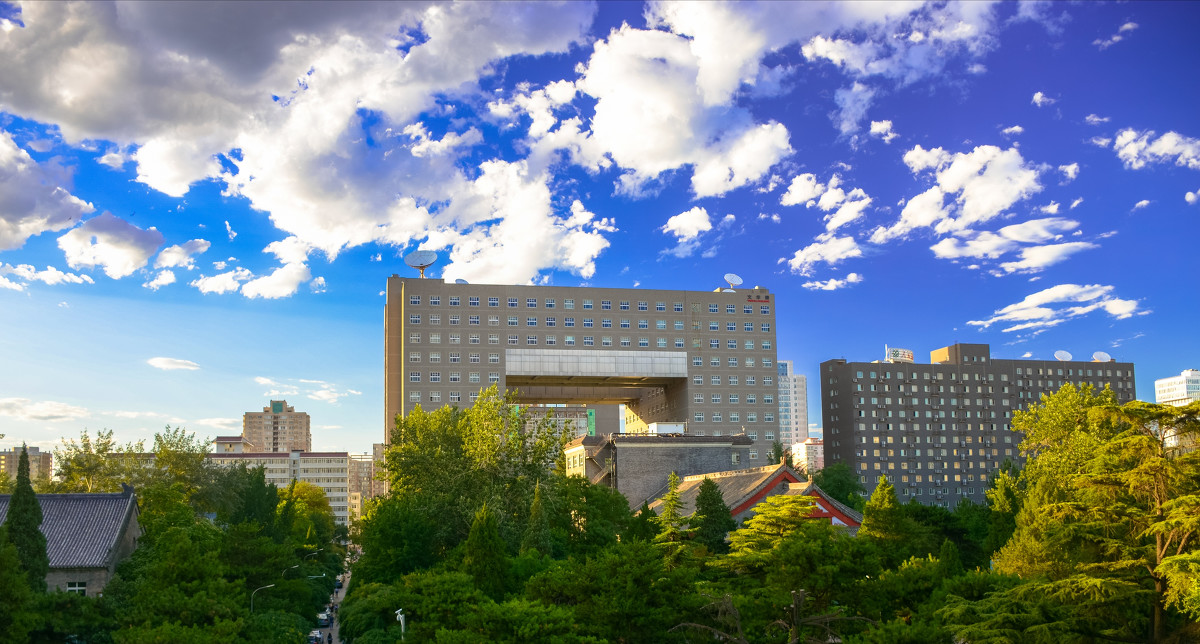
University Motto
"美美与共 知行合一"
Diversity in Unity Theory in Practice

University Overview Information in Chinese: https://www.muc.edu.cn/gk/xxjj.htm
Official Minzu University Website (Chinese Only): https://www.muc.edu.cn/

